Quote/s of the Day – 8 April – Feast of the Annunciation of the Blessed Virgin Mary – Isaias 7:10-15, Luke 1:26-38 – Scripture search here: https://www.drbo.org/
“And the Lord God shall give unto Him
the throne of David, His father
and He shall reign in the house of Jacob forever.
And of His Kingdom there shall be no end.”
Luke 1:32-33
“What is said of the House of David
applies, not only to Joseph but also to Mary.
It was a precept of the law that each man should marry
a wife from his own tribe and kindred.”
St Bede the Venerable (673-735)
Father and Doctor of the Church
“He Who is Infinite, Limitless,
came to dwell in your womb;
God, the Child Jesus,
was nourished by your milk.
You are the ever virginal Doorway of God;
your hands hold your God;
your lap is a throne raised up
above the Cherubim…
You are the wedding chamber of the Spirit,
the “city of the living God,
gladdened by the runlets of the stream,”
that is to say, the waves of the Spirit’s gifts.
You are “all fair, the Beloved” of God.”
St John Damascene (675-749)
Father and Doctor of the Church
Blessed Shall be Her Name
Anonymous Author
Praise we the Lord this day,
This day so long foretold,
Whose promise shone with cheering ray
On waiting saints of old.
The prophet gave the sign
That those with faith might read;
A Virgin, born of David’s line
Shall bear the promised Seed.
Ask not how this should be,
But worship and adore;
Like her whom Heaven’s majesty
Came down to shadow o’er.
She meekly bowed her head
To hear the gracious word,
Mary, the pure and lowly maid,
The favoured of the Lord.
Blessed shall be her name
In all the Church on earth,
Through whom that wondrous Mercy came,
The Incarnate Saviour’s Birth.
Jesus, the Virgin’s Son,
We praise You and adore,
Who are with God the Father One
And Spirit evermore.
Amen



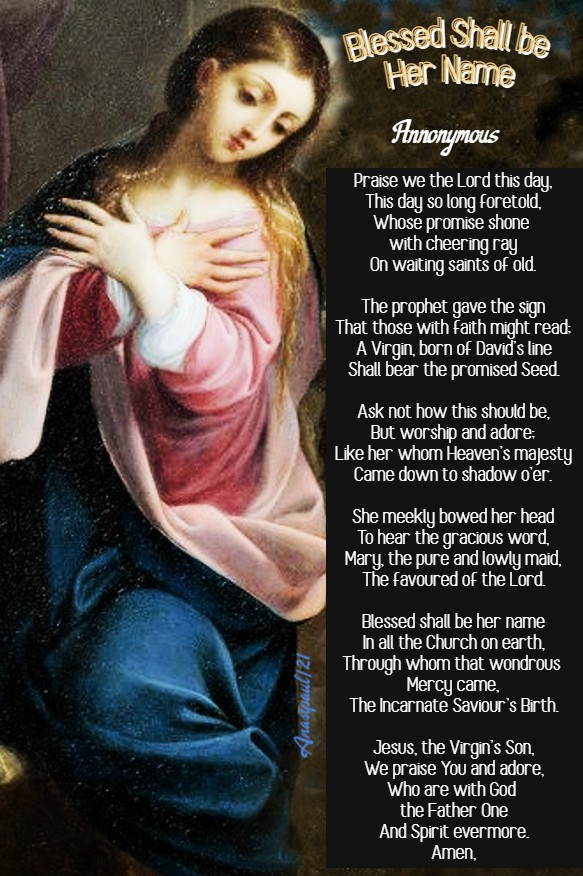

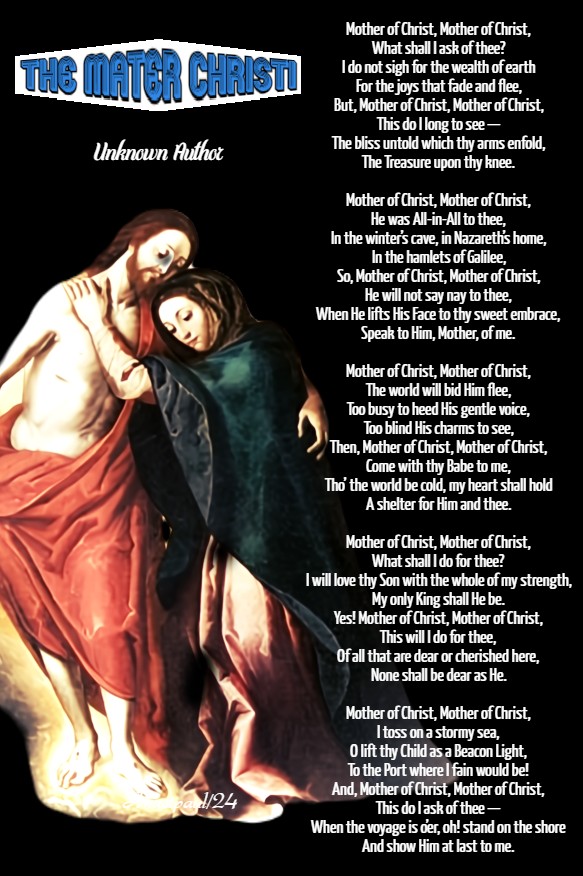



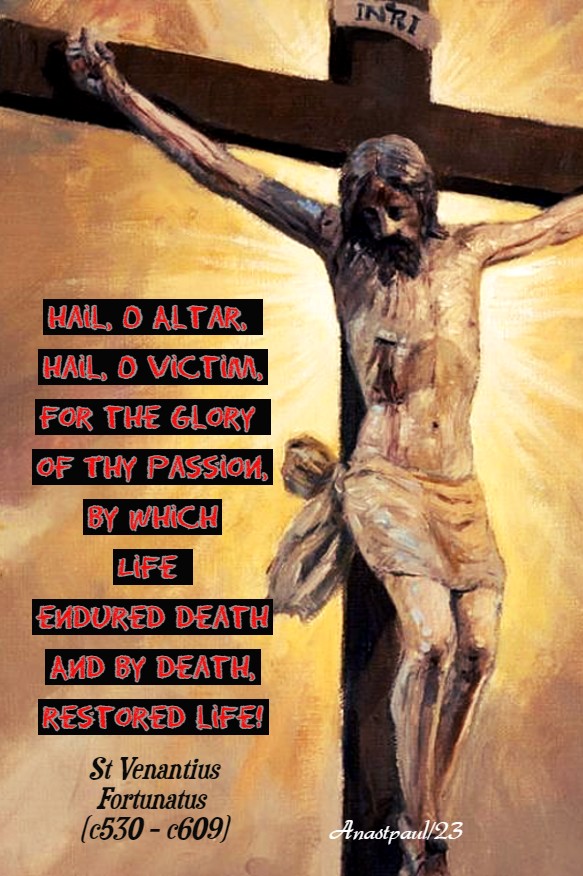
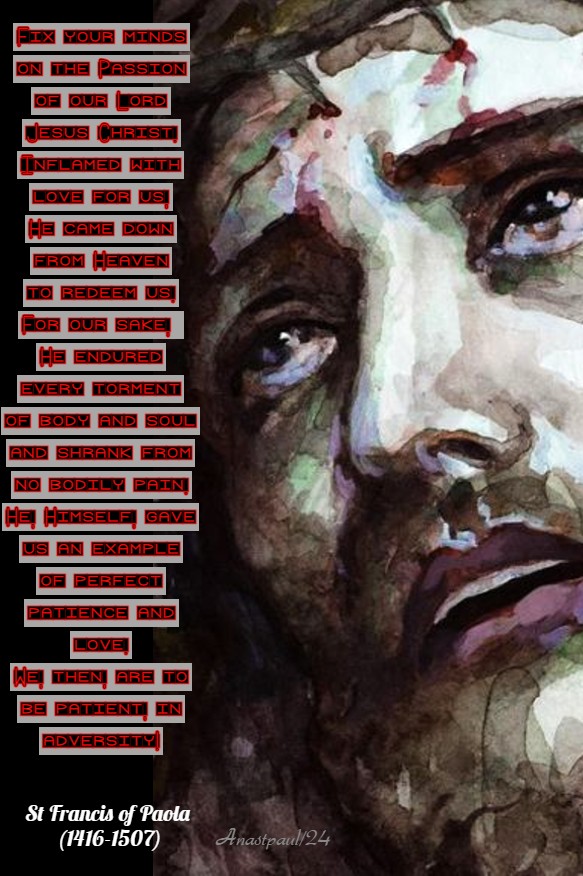












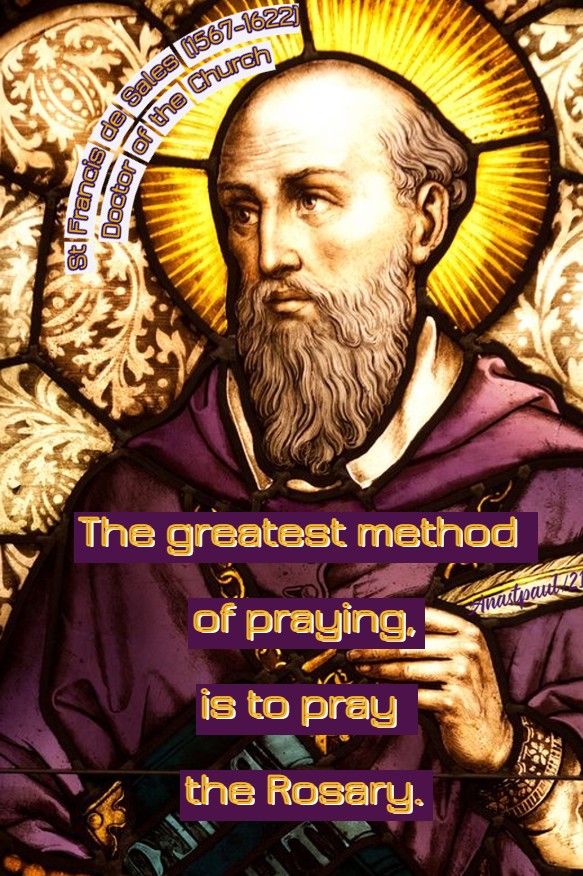




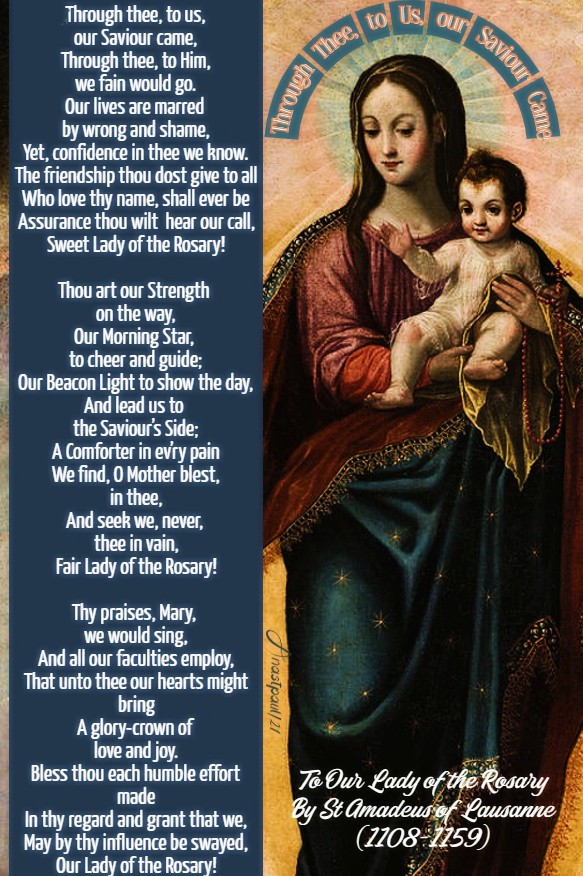





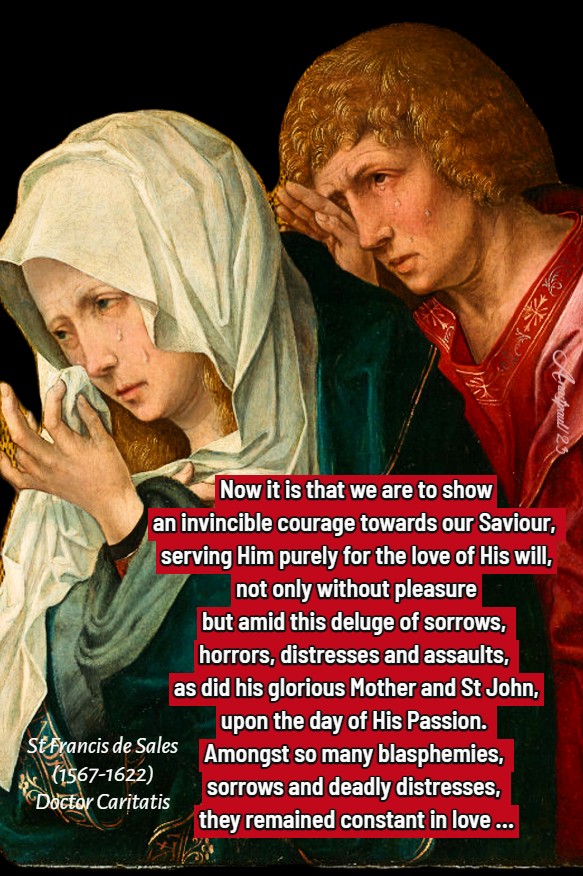

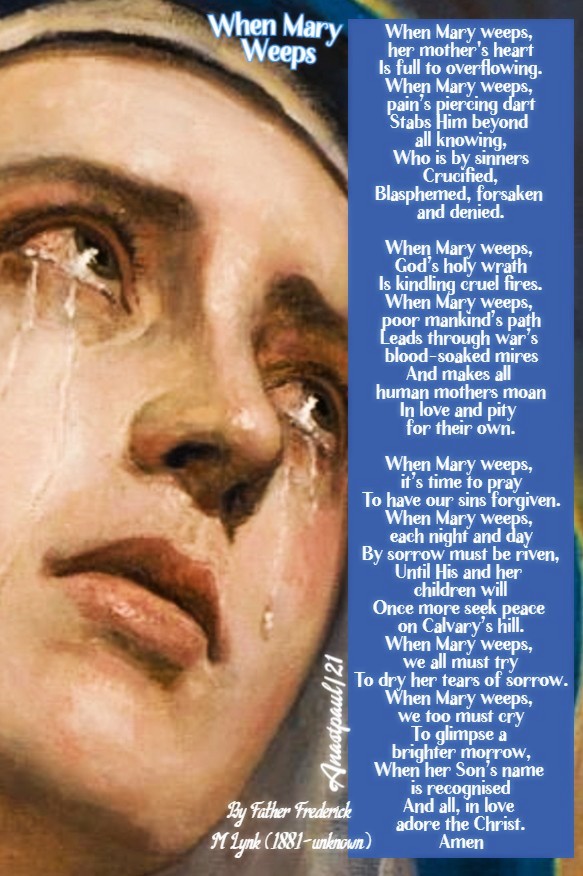




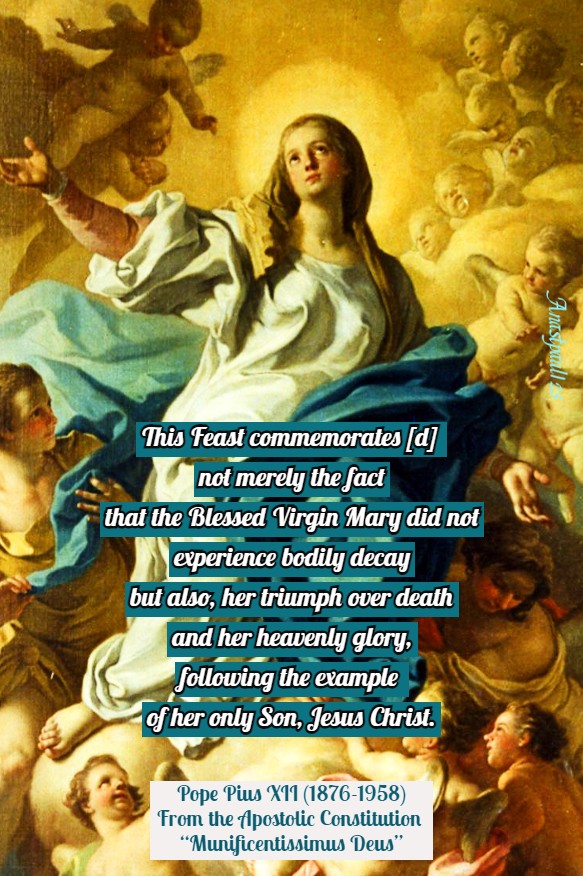



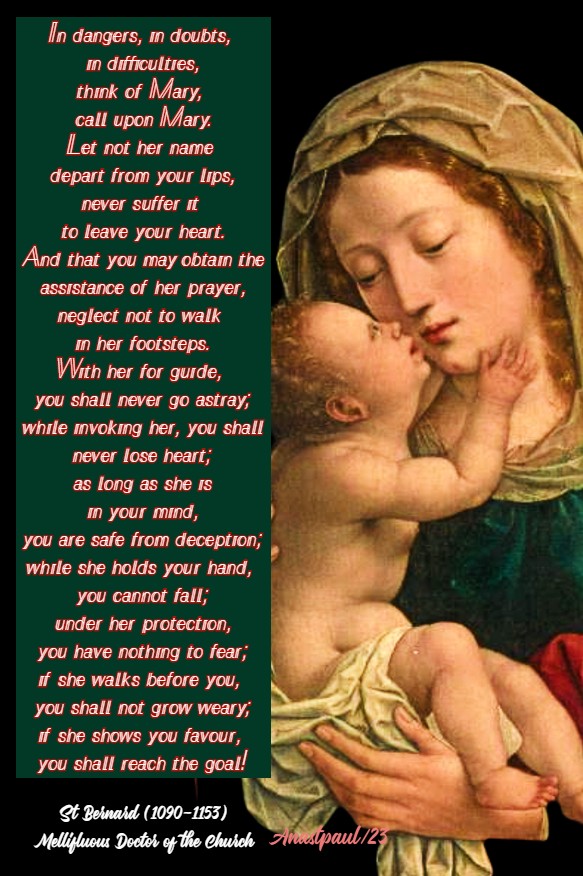


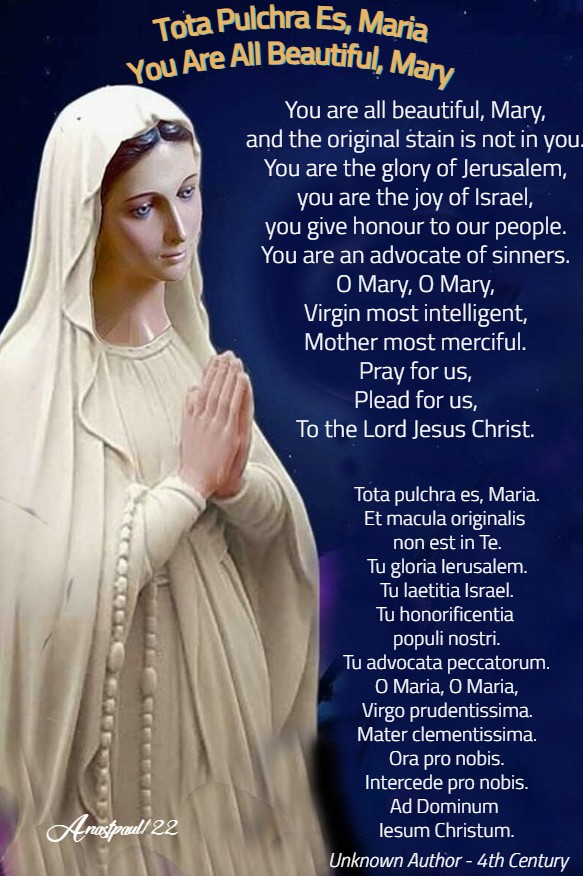


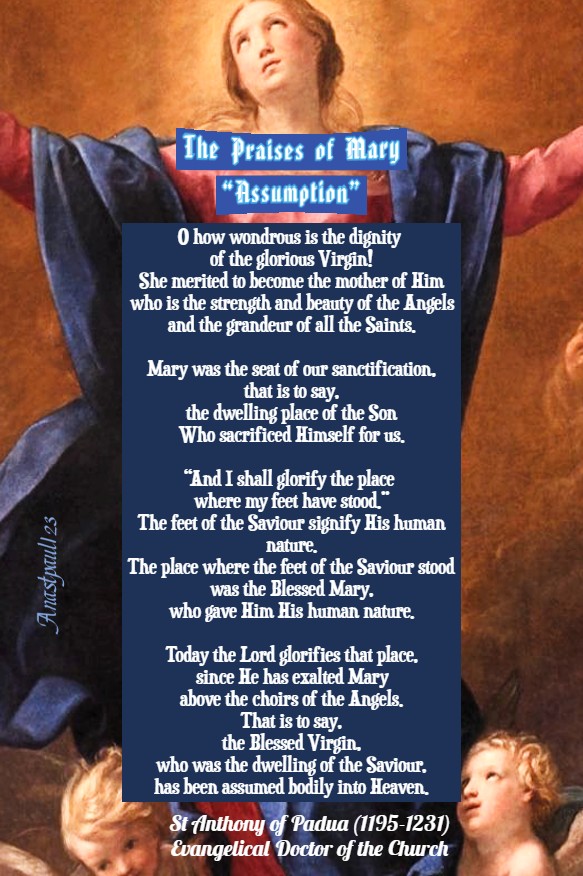

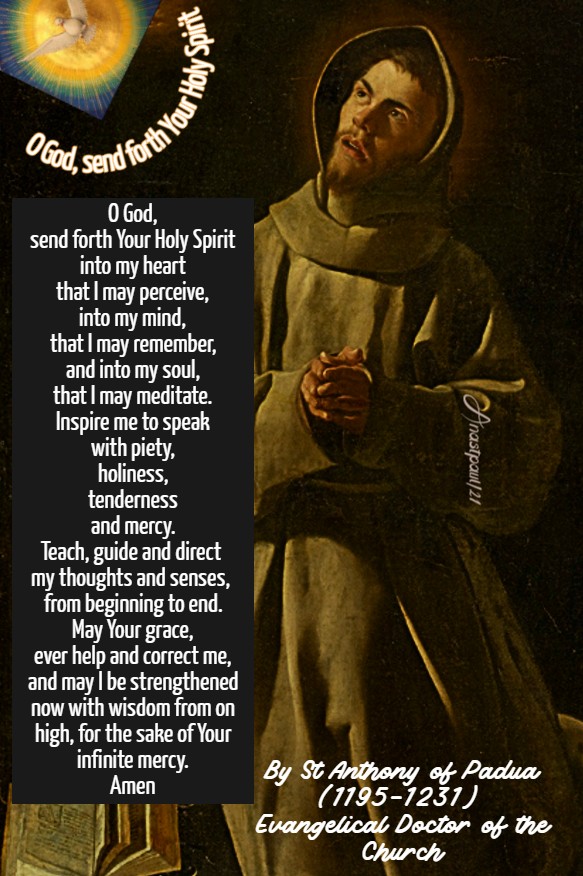








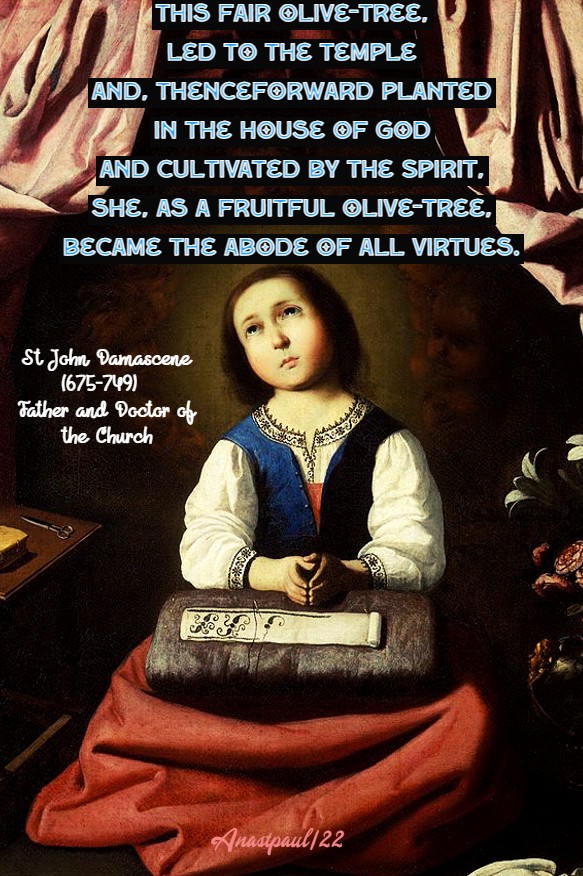












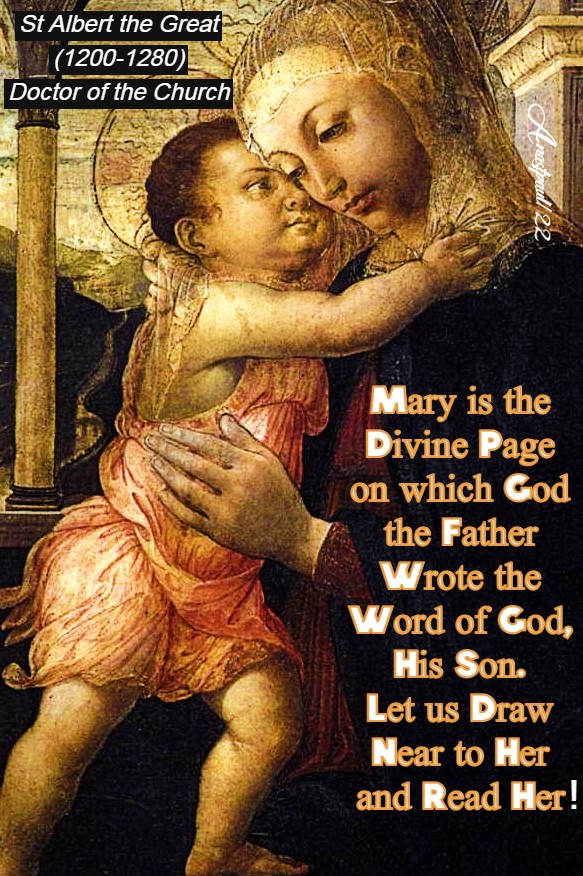






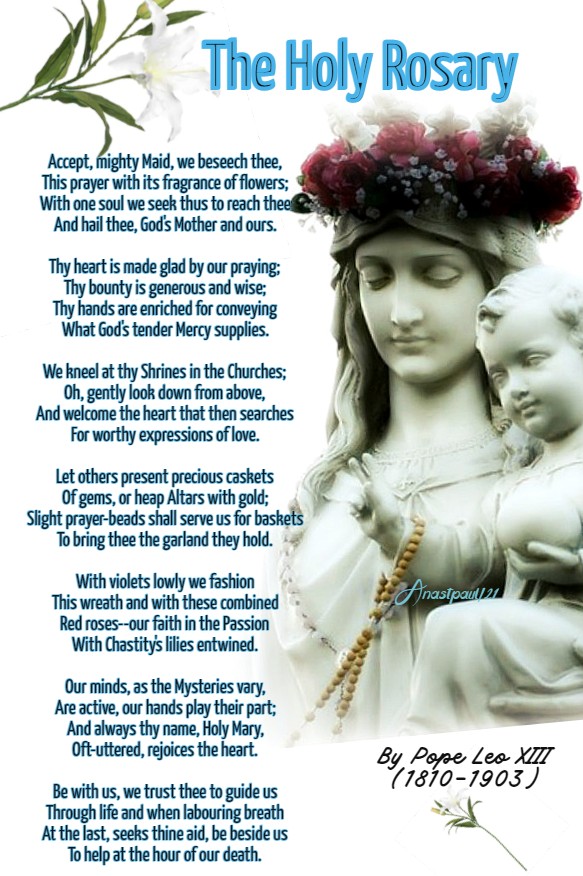







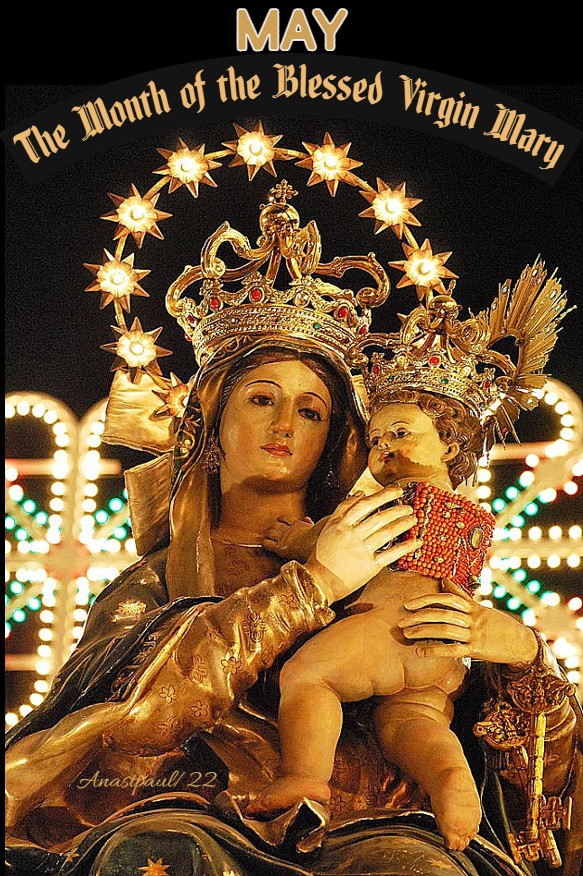



You must be logged in to post a comment.